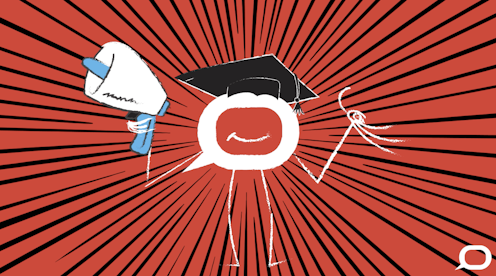Don't lose hope, quality media still exists in Australia
- Written by Misha Ketchell, Editor, The Conversation

Over the past few years you will have heard a lot about fake news, but Harvard researcher and head of the First Draft journalism project Claire Wardle recently told Fran Kelly on ABC’s RN the term is misleading and should be scrapped. I couldn’t agree more. Trust in media is in decline globally, and every time we talk about fake news we hasten the trend by spreading a myth of false equivalence. With Donald Trump labelling everything short of sycophantic praise as “fake news”, too many people are falling into the trap of thinking “they’re all as bad as each other”.
But they’re not, and the differences matter. The New York Times might make mistakes, but its editorial standards are qualitatively superior to those at Fox News or a conspiracy theorist’s blog. In Australia the ABC has recently been under attack for giving a platform to Steve Bannon, but its rare debatable judgement calls actually underline its overall commitment to quality. We should be willing to critique media outlets robustly, but if we forget how to give credit where it’s due we destroy the incentive for media outlets to hold themselves to a higher standard.
Here at The Conversation we care about trust and accuracy above all else, and we aim to be utterly transparent about how we work. We start with using credible sources – academics with expertise on the topic they are writing about. While our authors are often passionate and opinionated, we seek to publish those who are free of any vested interest in the topic they are covering. And we ask all our authors to fill in a disclosure statement so our readers are fully informed about any potential conflicts.
All our editors are experienced journalists who comply with the MEAA code of ethics. They are also answerable to me as editor, and ultimately to an Editorial Board made up of senior academics from across the Australian university sector. If we do make a mistake we don’t hide from it. We correct it promptly and prominently. If we need to retract an article we publish a separate article explaining what happened and why the article was removed. We even promote our corrections vigorously via social media – our aim is to do everything in our power to completely undo the damage we might have done by mistakenly publishing misleading information.
And if you’re interested in these issues – media literacy, fact-checking, public interest journalism, how to find information you can trust – you might enjoy this recent interview with The Conversation’s Digital Storytelling Editor Sunanda Creagh on the ABC Radio Sydney program, Focus. And consider making a donation here to support The Conversation.
We don’t claim to be perfect, but we do claim to be different in ways that matter, and we think that’s something you ought to know about.
Authors: Misha Ketchell, Editor, The Conversation
Read more http://theconversation.com/dont-lose-hope-quality-media-still-exists-in-australia-102980





